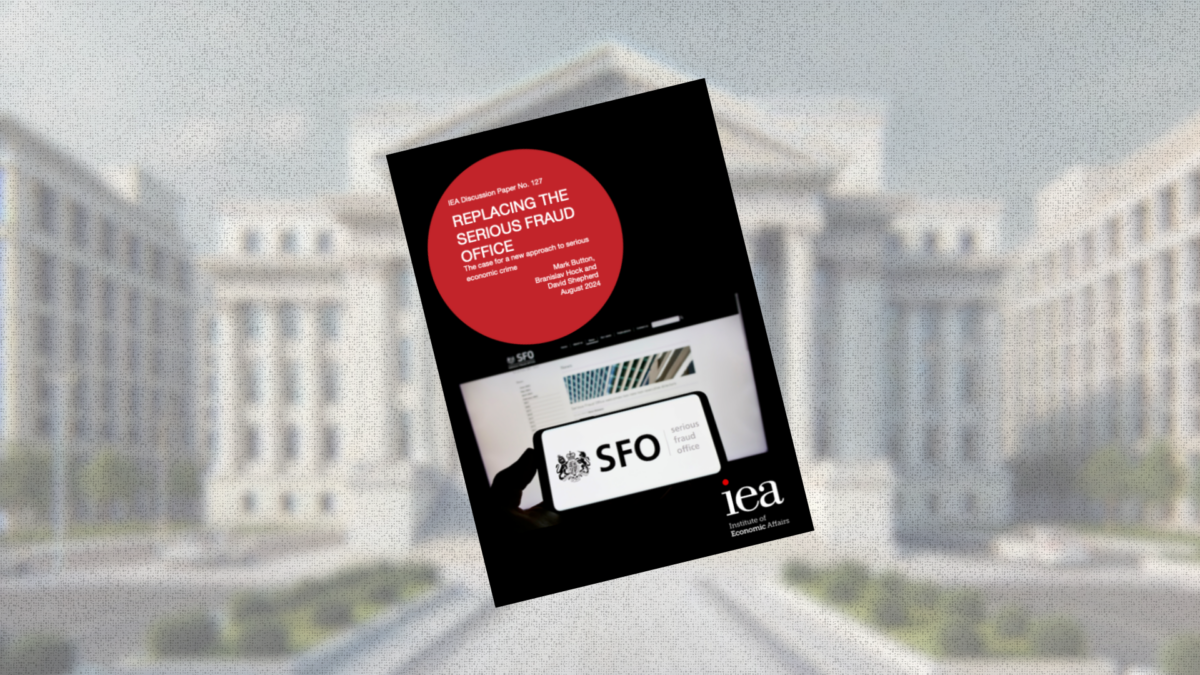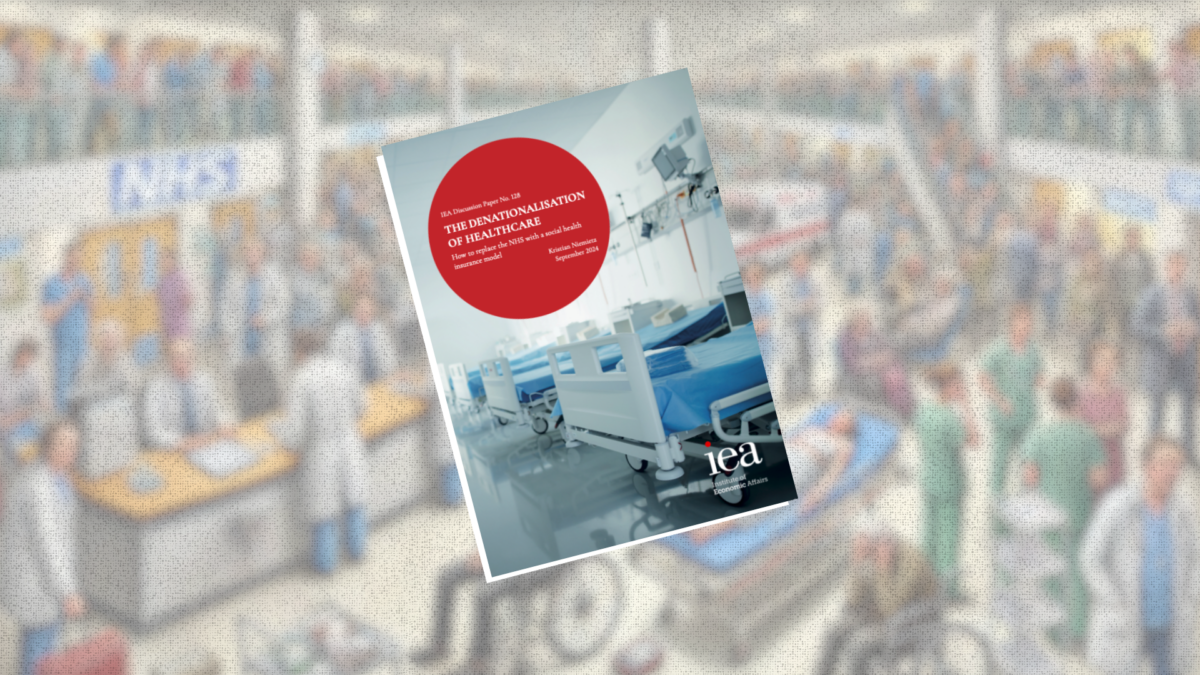Unions Resurgent? The Past, Present and Uncertain Future of Trade Unions in Britain
SUGGESTED



Contents
Summary
- Recent long-running and disruptive strike action has revived interest in a trade union movement which has been in long-term decline.
- Economists have always been in two minds about unions, seeing them as a possible countervailing power to over-powerful employers but also potentially using monopoly powers to distort labour markets.
- British trade unions have a long history; for many years their legal status was shaky and it was not until 1871 that members were free from the possibility of criminal prosecution and 1906 before union funds were safe from claims for damages for strike action.
- In the twentieth century two world wars led to the role of unions being enhanced and after the second war becoming an increasingly accepted part of the economic and political establishment.
- The post-war years, however, led to an arguably excessive growth in union power and influence that created problems for the UK economy and sometimes involved an unacceptable degree of coercion and disorder.
- Successive governments in the 1960s and 1970s attempted unsuccessfully to reform industrial relations, with widespread strike action in the late 1970s culminating in the Winter of Discontent.
- Under Margaret Thatcher and John Major, militant trade unions were taken on and successive pieces of legislation clipped back their ability to disrupt the economy.
- Since then, there has been a long period of decline in union membership and the coverage of collective bargaining. This is not, however, unique to the UK, suggesting ‘anti-union’ legislation cannot be the only explanation.
- Today’s union membership is very different from that in the past, with women now outnumbering men and with concentrations of union strength among well-qualified employees in the public sector or privatised industries which were once nationalised.
- Union membership still carries a wage premium and members also enjoy other employment advantages, but these advantages have been declining as across-the-board employment regulation has proliferated, supporting non-union as well as union workers.
- Unionised businesses display slow productivity growth and employment in non-unionised businesses grows faster.
- Strikes are now concentrated in the public sector, and they are aimed at inconveniencing the public in the belief that this is the best way to pressure governments to concede improvements in pay and conditions.
- There is unlikely to be a spontaneous revival in union membership, and attempts by government to encourage such a revival are not an effective vehicle for pursuing ‘economic justice’.
- While unions have a legitimate role in the economy and civil society, serious disruptions to parts of the public sector where the citizen has no effective choice and where there is potential damage to health, safety and important government functions, may call for some restrictions.
- Governments in other comparable countries make use of compulsory arbitration and strike bans in some important public services. If we were to see a return to continuing costly disruption on the lines of the 1970s, these options might have to be explored even by a Labour government.
Foreword
During episodes of large-scale industrial action, the Institute of Economic Affairs receives media requests from TV or radio stations, which want to set up a debate between a supporter and an opponent of the strikes. Curiously, even when none of us have publicly commented on the subject, and media producers cannot possibly know what the position of anyone at the IEA is going to be, they just automatically assume that we must be in the anti-strike camp. Their thinking seems to be: the IEA is a classical liberal, free-market think tank, and being a free-marketeer means being ‘anti-union’.
This is a fundamental misunderstanding, and if nothing else, I hope that Professor Shackleton’s book on the history and the economics of trade unionism will help to clear this up.
A trade union is, in principle, a voluntary civil society association like any other, just like a tennis club, or the Campaign for Real Ale (CAMRA), or the Anglo-Hispanic bilingual meetup group. Thus, for a liberal free-marketeer to be ‘anti-union’ would make no more sense than for them to be ‘anti–tennis club’, ‘anti-CAMRA’, or ‘against the Anglo-Hispanic bilingual meetup group’.
A classical liberal cannot be per se ‘anti-union’ (or, for that matter, ‘pro-union’). They can only be against legislation that gives unions special privileges or coercive powers, for the same reason that they would be against legislation that gave tennis clubs or CAMRA special privileges or coercive powers.
In a free society, the right to set up or join independent trade unions – where ‘independent’ refers to independence from employers, but also from the state – is a fundamental and, from a liberal perspective, non-negotiable right. Countries which suppress those rights are not pleasant places to live: we can think of fascist regimes, military dictatorships, but also, ironically, self-described ‘workers states’, such as the former Soviet Union and its allies.
Conversely, where totalitarian systems are replaced by liberal democracies, this is usually accompanied by an emergence, or a return, of independent trade unionism. For example, in the Polish People’s Republic, it was a trade union, Solidarnos´ c´ , which became a focal point of the civic resistance against the socialist regime in the 1980s. In (what would become) West Germany, a long tradition of independent trade unionism sprang back to life immediately after the defeat of the Nazi regime, and after the fall of the Berlin Wall, this was extended to East Germany as well. In Chile in the 1980s, the revival of trade unionism was one of the steps in the transition from military dictatorship to democracy.
We can, of course, imagine a free society without trade unions, just as we can imagine a free society without tennis clubs, CAMRA, or English–Spanish bilingual meetup groups, if there is insufficient demand for them. But the right to set up or join an independent trade union must always be guaranteed, even if it is not actively used.
From a more narrowly economic perspective, trade unions also have a perfectly legitimate role to play in a capitalist market economy. It is a completely normal arrangement in market economies that people with similar interests sometimes get together, and pursue their shared interests jointly, rather than individually. For example, homeowners may form residents’ associations, and enter contractual relations with building companies, as a group, rather than individually. In the same way, a group of workers may decide that they want to negotiate aspects of their employment relationships collectively rather than individually. If all sides of the bargain agree with this arrangement, and enter it voluntarily, no supporter of free markets could have the slightest objections to that.
Where, then, does the misperception that free-marketeers are somehow hostile to trade unions come from?
Two reasons come to mind. Firstly, as mentioned, liberals object to special privileges for any group, irrespective of whether they sympathise with that group or not. At various points in British history, trade unions have enjoyed extensive privileges, and they arguably still enjoy some of those today. Where pro-market economists have said seemingly disparaging things about trade unions, they have done so in this specific historical context. Their statements should be read as such – not as a generalised hostility to trade unionism per se.
Secondly, while unions are not, in themselves, political organisations (any more than tennis clubs or CAMRA are), in practice, unions have often aligned themselves with left-wing political causes. That is, of course, their right – just as it would be the right of a tennis club, or of CAMRA, to align themselves with any political cause they may wish to align themselves with. But it means that they will sometimes clash with people who do not agree with that political cause.
But as Professor Shackleton also shows in this book, it is not always and everywhere the case that trade unions are part of the political Left. Historically, there have also been trade unions of various political persuasions, or none. There is also a tradition of trade unionism that is, if not explicitly classically liberal, then at least easily compatible with classical liberalism. Trade unionists in that tradition are fiercely protective of their independence, and they are hostile to state interference in labour markets, because they fear what might be called a ‘crowding-out’ effect. If employment relations are increasingly shaped by government legislation – who needs trade unions?
This strand of trade unionism seems to have gone extinct in Britain. But the insight that government action can crowd out trade unions remains relevant, and in a reverse conclusion, this also means that a weakening of the trade union movement may well be undesirable from a liberal perspective. Where trade unions recede, the space they vacate is not necessarily filled by voluntary free market arrangements. It is just as likely to be filled by even more government regulation, and even more government interference in economic life.
But while this book is not – and, for the reasons described above, could not be – an ‘anti-union’ book or an exercise in ‘union-bashing’, trade unionists and their sympathisers will, of course, still find plenty in it to take issue with. Professor Shackleton is immune to the trade union romanticism that continues to dominate large sections of the political Left, where perceptions remain stuck in the days of Arthur Scargill and the Miners’ Strike. Union romantics still associate trade unionism with coalminers and steel workers, when in 2020s Britain, a trade union member is far more likely to be a relatively well-paid white-collar public sector employee. Professor Shackleton also shows that some of the economic benefits often ascribed to trade unionism are overstated or non-existent, or may exist in a narrow sense, but are offset by less visible costs elsewhere. He shows that contrary to fashionable opinion, the long-term decline in trade unionism is not the result of a class war waged against them, but simply a result of changes in the composition of the economy. It is not unique to Britain, and it is not easily amenable to legislative changes.
All in all, this book offers an account of the history and economics of trade unionism which is often critical and unsentimental, but never hostile, and not at all unsympathetic. I hope that trade union members will read it in that spirit.
The views expressed in this monograph are, as in all IEA publications, those of the author alone and not those of the Institute (which has no corporate view), its managing trustees, Academic Advisory Council members or senior staff. With some exceptions, such as with the publication of lectures, all IEA monographs are blind peer-reviewed by at least two academics or researchers who are experts in the field.
Kristian Niemietz
Editorial Director and Head of Political Economy,
Institute of Economic Affairs
PDF Viewer
Trade Unions Interactive (2)
About the Author
J. R. Shackleton is Professor of Economics at the University of Buckingham and Research and Editorial Fellow at the Institute of Economic Affairs. He edits the journal Economic Affairs.



